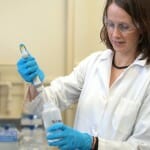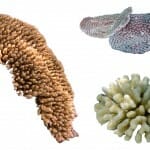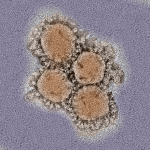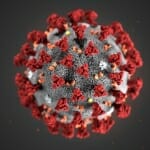Category Science & Technology
At bioenergy crossroads, should corn ethanol be left in the rearview mirror?
New research shows that the carbon emissions from using land to grow corn can negate or even reverse any climate advantages of corn ethanol relative to gasoline. Read More
Sharon Dunwoody was a ‘star’ of science communication
Sharon’s scholarship helped generations of journalists, students and scientists become better translators of complex ideas to audiences all over the world. Read More
UW-built instrument will enhance views of distant galaxies
A near-infrared spectrograph, which splits light into its individual colors to form a rainbow-like spectrum, will soon be shipped to South Africa from UW–Madison. Custom-built here by staff in the Washburn Astronomical Laboratories, it will expand the capabilities of the Southern African Large Telescope. Read More
New UW–Madison research projects to benefit Great Lakes
Wisconsin Sea Grant announced 12 new two-year research projects worth $2.8 million that build Great Lakes understanding, leading to science-based management and policy decisions. Six are at UW–Madison. Read More
UW–Madison online graduate engineering programs rank in top 10
This is the eleventh year in a row that the online engineering programs, offered through the College of Engineering’s Interdisciplinary Professional Programs, have been highly ranked among a competitive field of engineering and online programs. Read More
Coral skeleton formation rate determines resilience to acidifying oceans
A new UW–Madison study has implications for predicting coral reef survival and developing mitigation strategies against having their bony skeletons weakened by ocean acidification. Read More
UW alum helped pack James Webb telescope for space travel
Wei-Di Cheng, a 1993 engineering graduate, analyzed mechanical ground systems to propose, design, fabricate, test and deliver ground systems to support spacecraft and payload integration. Read More
Researchers seeking study participants to lose weight — by phone
Log2Lose, an 18-month study, aims to help people build habits for a healthier lifestyle by sending them motivational text messages and providing an app to keep track of what they eat. Read More
Video: From weather to wonder
The Wonders of Physics traveling show is back in action at schools and public events. It is now presented by UW–Madison outreach specialist Haddie McLean, a former TV meteorologist. In this video, she visits Pecatonica Elementary School. Read More




















